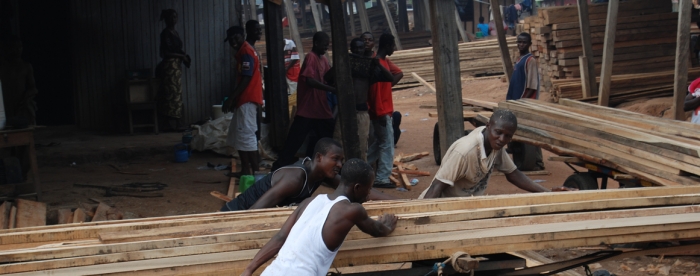In an attempt to develop alternatives for illegal chainsaw milling in Ghana, a multi-stakeholder dialogue (MSD) process was established in September 2008 to create a platform for shared perspective among different actors on issues and solutions for chainsaw milling activities in Ghana. It was expected to provide an effective pathway for information generation and sharing, while strengthening stakeholder groups for efficient representations. This study covers key findings of research conducted to assess the effectiveness of the MSD platform as a participatory process. The aim is to provide an input to stimulate further reflection on how multi-stakeholder dialogue can be adopted as an effective participatory mechanism in deliberating issues among different actors in specific sectors in Ghana.
This report was produced within the framework of the EU Chainsaw Milling Project “Supporting the integration of legal and legitimate domestic timber markets into Voluntary Partnership Agreements”. The project aims to find sustainable solutions to the problems associated with the production of lumber for local timber markets by involving all stakeholders in dialogue, information gathering and the development of alternatives to unsustainable chainsaw milling practices. In Ghana, the project is being carried out by Tropenbos International (TBI) in collaboration with the Forestry Research Institute of Ghana (FORIG) and the Forestry Commission (FC).

